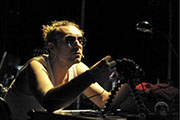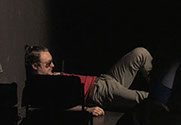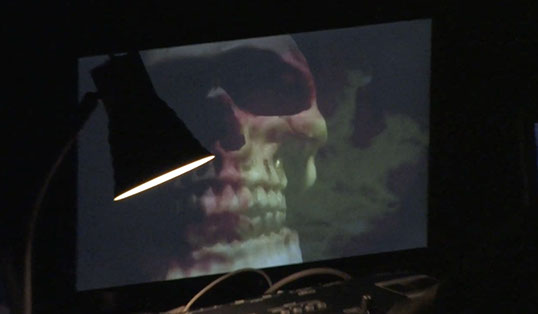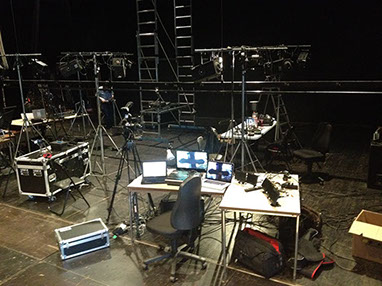Examples
Read more
CHAPTER 5.2.4 - 5.2.5
EXAMPLE 5.2.4. Video: Performance, scene 1c
1: They won’t consume themselves to death. They won’t die of old age or of illness. Or of boredom or through some kind of accident. They will live forever they will live on after you die. They won’t die in that way. Therefore you must kill him her. Therefore you must kill him. Her. Her. Him. Him her.
Therefore you must kill her him. Him. Him. Her.
Her. Her
him. Her. HER.
HIM. HIR HIR Her. Him. Hir.
Her. Her him. Her. HER. HIM.
HIR HIR Him. Her. Her. Her him.
Her. HER. HIM. HIR. Her. Him.
Hir. HER. HIM. HIR. HIR. Her.
Him.
Hir.
2:
Her. Her him. Her. HER. HIM.
HIR HIR Him. Her. Her.
Her him.
Hir.
Her. Her him. Her. HER. HIM.
Her. Her him. Her. HER. HIM.
HIR HIR Her.
Him. Hir.
Hir.
I don’t give a shit about hir. Everyone. I don’t give a shit about hir everyone. Not you.
(scene 2)
1: You’re gonna be the one I love.
2: I am.
1: Hamlet?
2: Yes. That’s me. You’re gonna become her.
1: When?
2: When she’s dead you’re gonna become her.
A work commentary
Tonight the two actors are rehearsing Hamlet. How do you play doubt? How do you play strategy? How do you play lethargy? Rafael Pettersson and Linda Ritzén play actors who play Hamlet and Ophelia who play Claudius and Gertrude. Who is who shall remain open at all times. Behold human nature: nobody coincides with himself.
(Wouter Hillaert in a work commentary for the performance at
Kunstenfestivaldesarts, Brussels 2012)


EXAMPLE 5.2.5. Sound: Radio play version, scene 4
2 I know what I´m gonna do. I’m gonna blow up the world to reach its core. That’s what I’m gonna do. I have to. I’m gonna blow up the world. I have to. I have to blow up the world to reach its core. I have to. I’m gonna. I’m gonna have to blow up the world have to blow up the core to reach the world to reach its core I’m gonna I have to I’m gonna I have to blow up the world to reach it’s the world to reach it’s core because I’m gonna because I have to because I have to the core because I’m gonna reach the core because I’m gonna find a core in all of this in the world because the world’s gonna be comprehensible and not like now, not like this sorrow after dad and and because I’m gonna it’s gonna


The stage has become a rehearsal hall. Or vice versa. Cameras, mixing panels, flight cases on wheels, tripods with spots... T the side, a long table, like a wooden pier, from where both actors jump into the empty space, and where they come swimming back to, as to a safe harbour. The rehearsal room is a sea. A sea of possibilities. A training ground in identities. Who is who? Who confronts whom? Nobody seems like himself.
(Wouter Hillaert in a work commentary for the performance 2012)